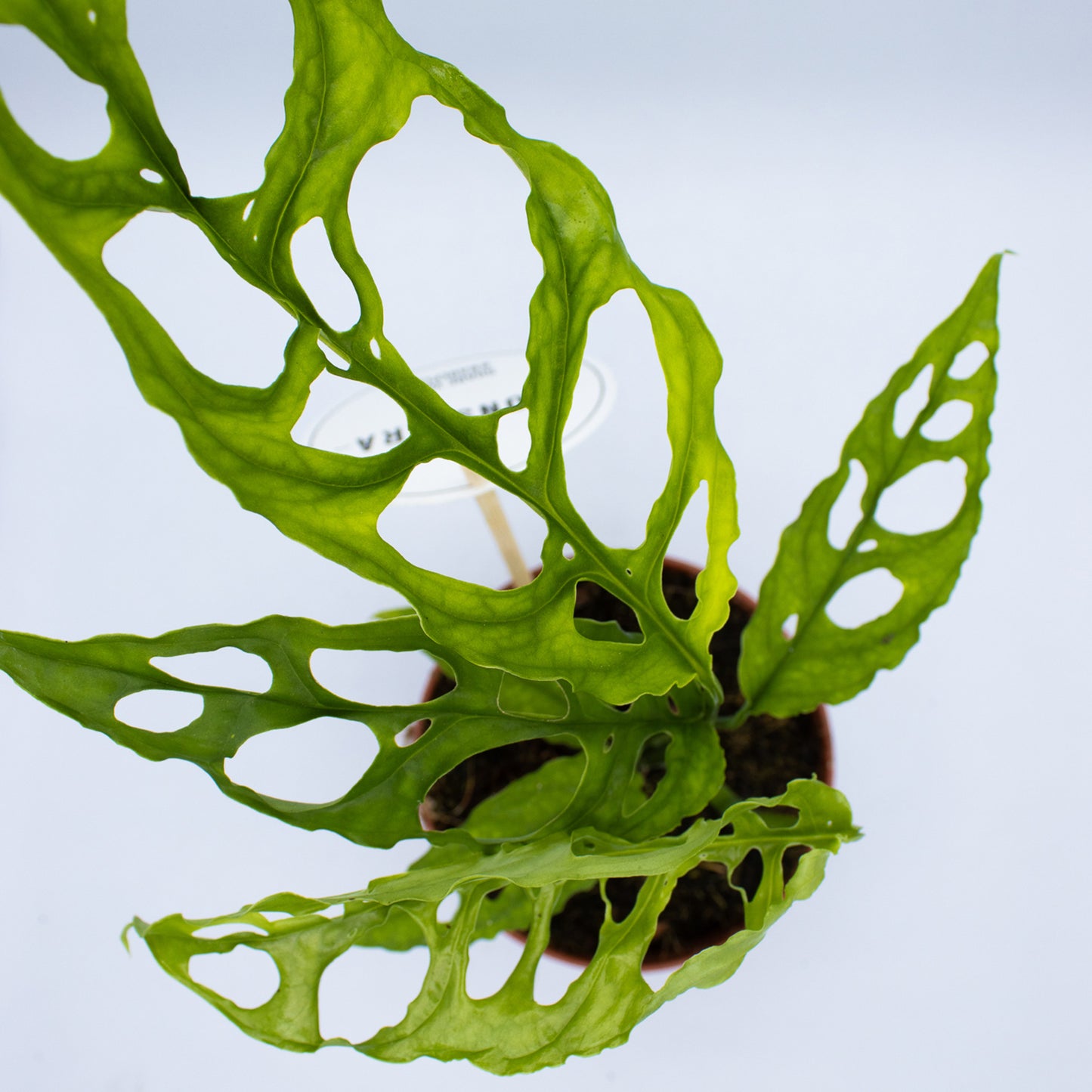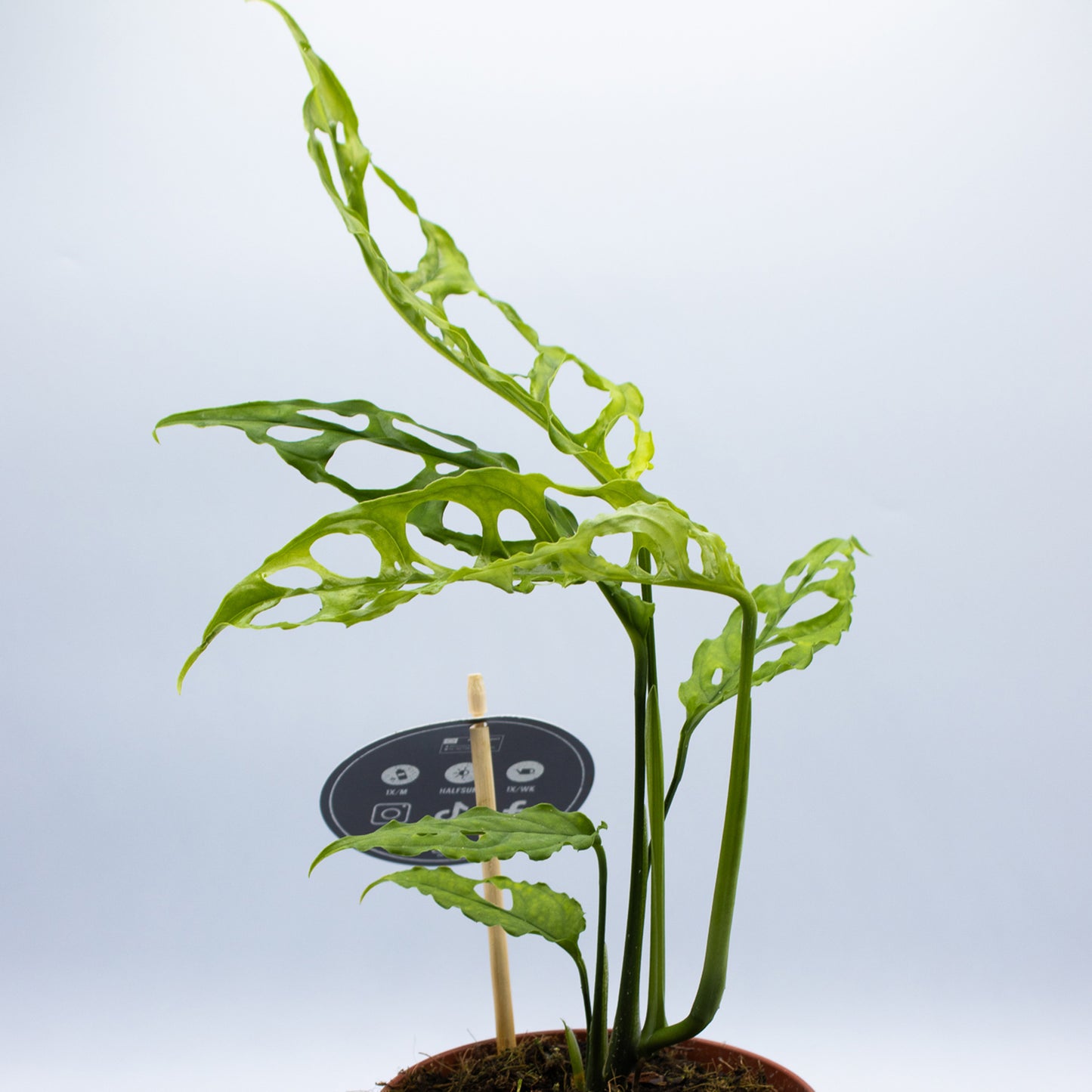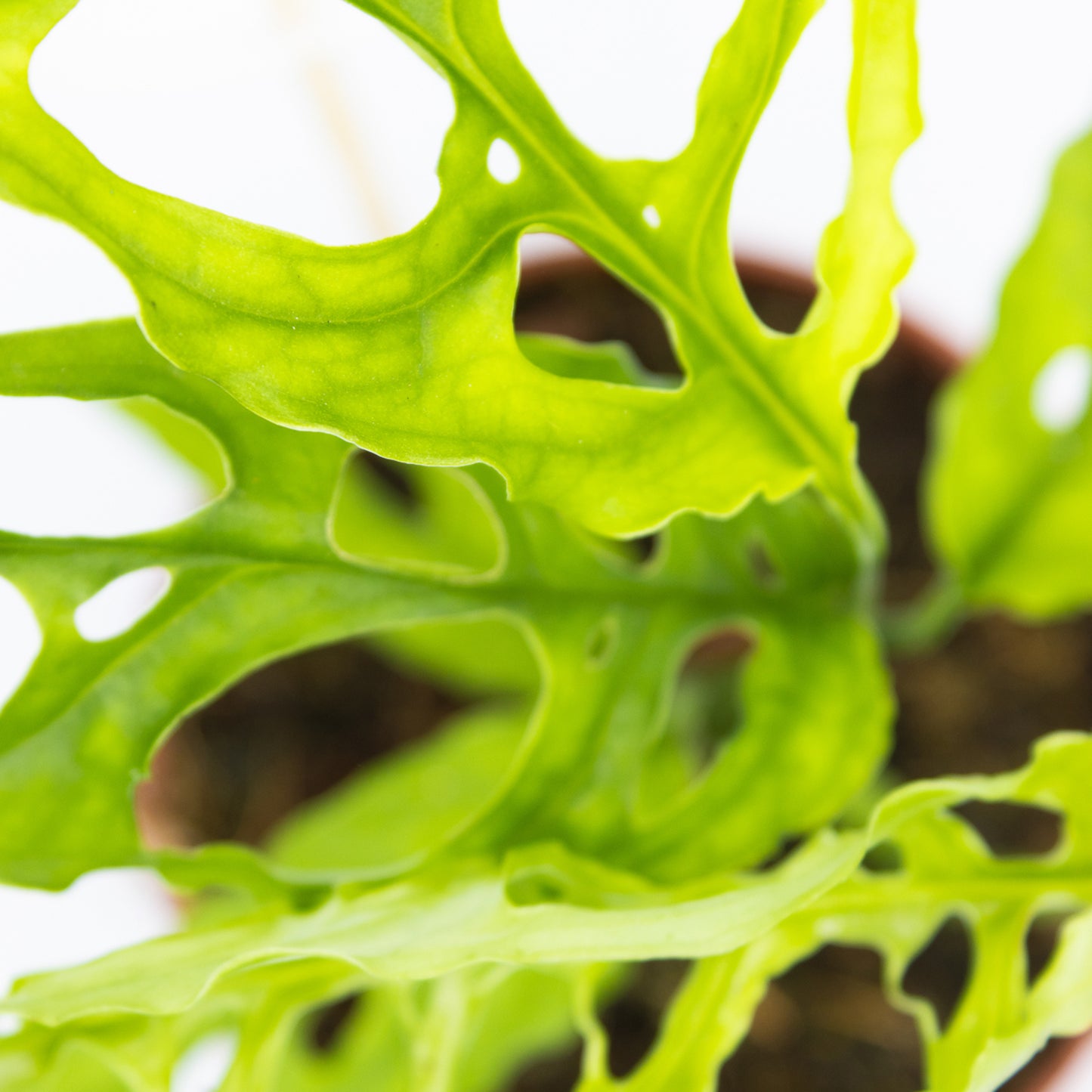1
/
of
3
Emm's Plant House
Monstera obliqua 'Peru'
Monstera obliqua 'Peru'
Regular price
£30.00 GBP
Regular price
£32.13 GBP
Sale price
£30.00 GBP
Unit price
/
per
Taxes included.
Couldn't load pickup availability
Discover the rare and unique Monstera obliqua 'Peru' plant, recognized for its exquisite appearance and air-purifying qualities. With its beautiful and delicate foliage, this plant adds a touch of elegance to any space. As a top choice for plant enthusiasts, it's a must-have for your collection.
Care Guide
Care Guide
Full Botanical Name:
Monstera obliqua 'Peru'
Common Names:
Peruvian Monstera, Swiss Cheese Plant
Country and/or Region of Origin:
Native to the tropical forests of Peru.
Growing Conditions in Native Habitat:
Monstera obliqua thrives in the humid, dense understory of the forest, climbing trees and receiving filtered sunlight.
Care Information:
-
Light:
Prefers bright, indirect light. Too much direct sunlight can scorch the leaves, while too little light can stunt growth. -
Ideal Room:
Ideal for rooms with a lot of space and indirect sunlight such as living rooms, offices, or indoor patios. -
Feeding:
Feed with a balanced liquid fertilizer every 4-6 weeks during the growing season. Reduce feeding during the dormant winter months. -
Humidity:
Requires high humidity to thrive. Consider using a humidifier or placing the plant on a pebble tray. -
Ideal Temperature:
Prefers temperatures between 65°F and 85°F (18°C to 29°C). Avoid temperatures below 50°F (10°C). -
Watering:
Water when the top inch of the soil feels dry to the touch. Ensure good drainage to avoid root rot. -
Pet/Child Safe:
Monstera plants are toxic if ingested due to the presence of calcium oxalate crystals. Keep away from pets and children. -
Soil:
Use a well-draining, peaty soil mix that retains moisture but allows excess water to drain. -
Propagation:
Propagate through stem cuttings or air layering. Spring or early summer is ideal for propagation. -
Eventual Height and Spread:
Can grow several feet tall and wide, with a climbing or trailing habit. -
Growth Rate:
Moderate, depending on care and environmental conditions. -
Pests and Treatment:
Watch for pests like spider mites, mealybugs, and scale. Treat with neem oil or insecticidal soap as needed. -
Repotting:
Repot every 2-3 years to refresh the soil and accommodate root growth. -
Pruning:
Prune to control size and remove unhealthy parts. This encourages healthier growth and a fuller appearance. -
Folk Law:
Often seen as a symbol of longevity and good health, adding an exotic touch and supposed air-purifying qualities to homes.
Share






